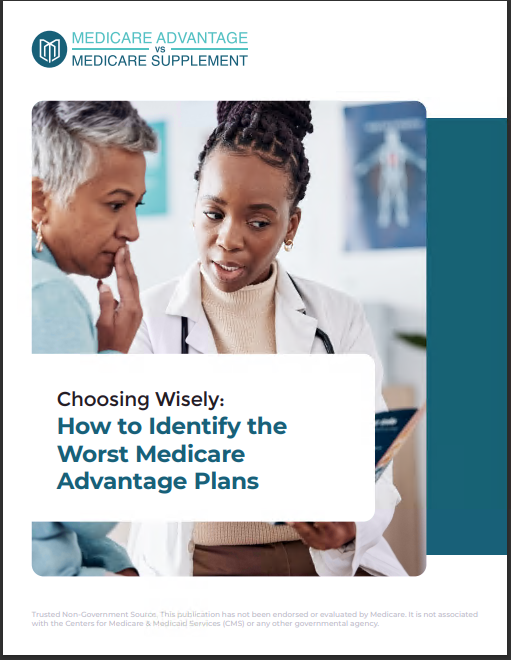Key Takeaways
- Understanding your Medicare eligibility is essential before turning 65 to ensure a smooth transition into healthcare coverage.
- Learning about the different enrollment periods and parts of Medicare can help you avoid penalties and missed opportunities for coverage.
Not Sure if You Qualify for Medicare? Here’s Everything You Need to Know Before You Turn 65
Turning 65 is an important milestone, especially when it comes to your healthcare. One of the most significant considerations is whether you qualify for Medicare, a federal health insurance program that provides coverage for people over the age of 65 and some younger individuals with specific disabilities. If you’re unsure about your Medicare eligibility, there’s no need to worry—this article will help you understand the basics and prepare for your healthcare journey as you approach retirement.
What is Medicare and Who is Eligible?
Medicare is a federal health insurance program managed by the Centers for Medicare & Medicaid Services (CMS). It was created to help individuals over 65 and those with qualifying conditions to receive affordable healthcare coverage. To qualify for Medicare, you need to meet certain criteria:
- Age: Most people become eligible for Medicare when they turn 65.
- Work History: You or your spouse must have worked and paid Medicare taxes for at least 10 years (40 quarters).
- Citizenship or Legal Residency: You must be a U.S. citizen or a legal resident who has lived in the U.S. for at least five consecutive years.
In addition to these requirements, younger individuals with specific disabilities or medical conditions, such as End-Stage Renal Disease (ESRD) or Amyotrophic Lateral Sclerosis (ALS), may also qualify for Medicare before they turn 65.
How to Determine Your Eligibility
If you’re approaching 65 and wondering whether you qualify for Medicare, it’s crucial to verify your eligibility status. Fortunately, you can check your eligibility status online through the Social Security Administration (SSA) website. If you’re already receiving Social Security benefits or Railroad Retirement Board benefits, you’ll automatically be enrolled in Medicare Parts A and B when you turn 65.
For those not automatically enrolled, it’s important to apply during your Initial Enrollment Period (IEP). This period starts three months before you turn 65 and ends three months after your birthday month. Applying within this timeframe ensures that you don’t miss out on coverage and helps avoid any late enrollment penalties.
What if You’re Still Working?
Many people nearing 65 are still in the workforce and may be covered by employer-sponsored health insurance. If this is your situation, you may wonder if you should enroll in Medicare or stick with your employer’s plan.
Generally, if you’re still employed and covered by a plan that offers comparable benefits to Medicare, you might be able to delay enrolling in Medicare Part B without facing a late enrollment penalty. However, this depends on the size of your employer:
- Large Employers (20+ employees): You can delay enrolling in Medicare Part B, as your employer’s insurance will remain your primary coverage.
- Small Employers (Fewer than 20 employees): Medicare becomes your primary insurance, and it’s usually recommended to enroll in Part B to ensure full coverage.
It’s a good idea to speak with your employer’s HR department to understand how Medicare coordinates with your current coverage.
The Different Parts of Medicare
Understanding Medicare can be confusing, especially with its various components. Medicare is divided into different “parts,” each offering different types of coverage:
Medicare Part A (Hospital Insurance)
Medicare Part A covers inpatient hospital stays, skilled nursing facility care, hospice care, and some home healthcare services. Most people don’t have to pay a premium for Part A if they or their spouse have worked and paid Medicare taxes for at least 10 years.
Medicare Part B (Medical Insurance)
Medicare Part B covers outpatient care, such as doctor visits, preventive services, lab tests, and medical supplies. Unlike Part A, Part B typically requires a monthly premium. It’s important to enroll in Part B when you’re first eligible to avoid late enrollment penalties.
Medicare Part C (Medicare Advantage)
Medicare Part C, also known as Medicare Advantage, is an alternative to Original Medicare (Parts A and B). These plans are offered by private insurance companies and often include additional benefits, such as dental, vision, and prescription drug coverage. It’s important to note that you must still be enrolled in both Parts A and B to join a Medicare Advantage plan.
Medicare Part D (Prescription Drug Coverage)
Medicare Part D provides coverage for prescription drugs. You can enroll in a standalone Part D plan to complement Original Medicare or choose a Medicare Advantage plan that includes prescription drug coverage. Similar to Part B, enrolling late in Part D may result in a penalty.
Special Enrollment Periods (SEPs) and Avoiding Penalties
While your Initial Enrollment Period is the best time to sign up for Medicare, life changes may make you eligible for a Special Enrollment Period (SEP). An SEP allows you to sign up for Medicare outside of the standard enrollment periods without facing penalties. Common reasons for an SEP include losing employer coverage or moving out of your plan’s service area.
Late Enrollment Penalties
Missing your enrollment windows can result in costly late enrollment penalties, particularly for Parts B and D. The Part B penalty adds 10% to your premium for every year you were eligible but didn’t enroll. For Part D, the penalty is calculated based on the length of time you didn’t have creditable prescription drug coverage. These penalties are generally applied for as long as you have Medicare.
What to Expect Once You’re Enrolled
Once you’re enrolled in Medicare, it’s important to understand what your coverage includes and what it doesn’t. Original Medicare (Parts A and B) provides coverage for many healthcare services, but it doesn’t cover everything. For instance, long-term care, routine dental and vision care, hearing aids, and some other services are not covered under Original Medicare.
Additionally, you may want to consider a Medicare Supplement Insurance (Medigap) policy, which helps cover out-of-pocket costs like copayments, coinsurance, and deductibles. Medigap plans are offered by private insurance companies and are designed to work alongside Original Medicare, not as a replacement.
Planning Ahead for Your Health Needs
As you approach age 65, it’s important to take stock of your healthcare needs and how Medicare fits into your overall retirement plans. Here are a few things to consider:
- Healthcare Costs: Even with Medicare, you’ll have out-of-pocket costs such as premiums, deductibles, and copayments. Planning for these expenses is crucial to ensuring that your healthcare remains affordable.
- Prescription Drugs: If you take medications regularly, look into a Part D plan or a Medicare Advantage plan that includes drug coverage. Make sure to review the plan’s formulary (the list of covered drugs) to ensure your medications are included.
- Preventive Care: Medicare covers many preventive services, including screenings and vaccinations. These services are essential to maintaining good health as you age.
How to Get Help with Medicare Enrollment
Navigating Medicare can be complex, and if you’re unsure about your eligibility or how to enroll, there are plenty of resources available to assist you. The Social Security Administration (SSA) is your primary point of contact for applying for Medicare. Additionally, you can reach out to licensed insurance agents who can guide you through your options and help you understand how Medicare fits into your broader healthcare needs.
Preparing for Medicare: Next Steps
As you approach 65, it’s time to start thinking seriously about your Medicare enrollment. Make sure to check your eligibility and gather the necessary documents to avoid any delays. Planning early and understanding the different parts of Medicare can help you make informed decisions that will impact your healthcare for years to come.
Preparing for Healthcare After 65
Ensuring you qualify for Medicare is only the first step. Once enrolled, it’s important to understand your coverage options and potential costs to prepare for your healthcare journey in retirement. Don’t forget to explore additional coverage options, like Medicare Supplement plans, to safeguard yourself against unexpected expenses.










